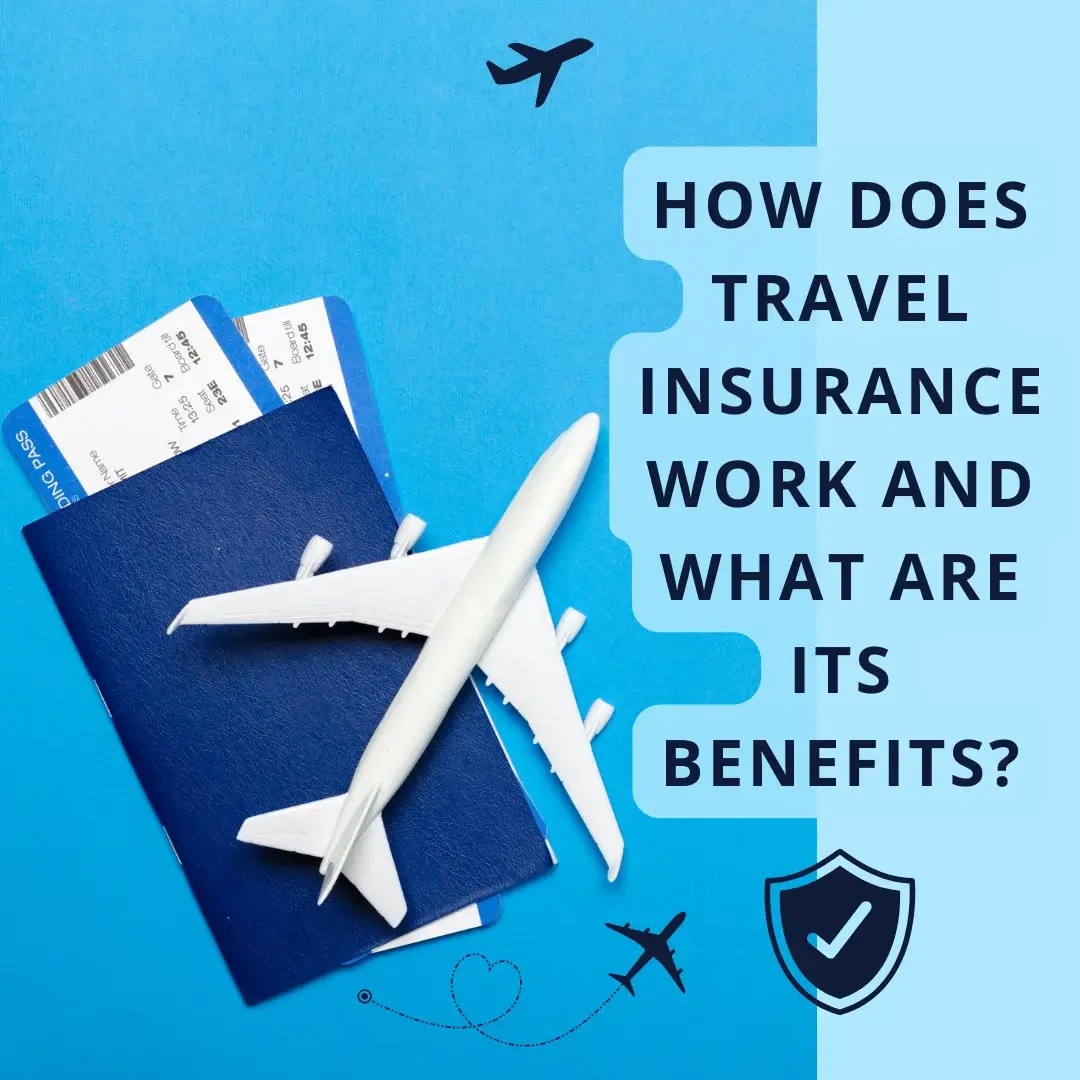How Does Travel Insurance Work and What Are Its Benefits?
Whether you’re planning an adventurous trip or traveling for work, you might be wondering when to buy travel insurance. There are many factors to consider before making a purchase, but most importantly, you need to understand what travel insurance is. Being informed can help you decide if travel insurance is right for you.

What Is Travel Insurance?
Travel insurance is a kind of insurance policy that offers protection against various mishaps and losses during a journey. This can range from simple problems like a flight being missed, or a suitcase arriving late, to severe problems like an accident or serious sickness.
What Does Your Travel Insurance Policy Cover?
Traveling without insurance can leave you facing significant expenses if something goes wrong. Travel insurance offers financial security in different ways depending on the type of policy. Most policies provide coverage for:
Medical Emergencies Abroad
Travel insurance provides medical expense coverage that your normal health plan does not when you are in another country. It can range from £5 million to £10 million or even more, depending on the policies that are being offered. This supplementary coverage is important if you fall ill or have an accident before or during travel.
Trip Cancellations
Travel insurance can also assist if you have to cancel your trip at short notice. Many of the resorts and cruise lines charge their clients high cancellation fees or offer very low cancellation policies. Travel insurance shields you in case of mishaps that make you cancel your trip at short notice.
Beyond Credit Card Coverage
Credit cards can provide some coverage for travel costs, yet they often include per-incident and annual caps. They do not usually help with large expenditures like an illness or an evacuation. Such contingencies are, however, costly, and this is where travel insurance comes in to offer complete coverage for all these risks.
Lost or Stolen Belongings
Travel insurance can cover expenses from lost or stolen luggage. Airlines must provide compensation for lost luggage, but the procedures are inconvenient, and compensation may not be adequate. Thus, travel insurance helps you in recovering the value of your lost items without the hassle.
Personal Liability Protection
If you accidentally cause harm to someone in any way, and they make a claim against you then a personal liability coverage in your travel insurance policy may cover your legal costs. This protection can assist you in avoiding expensive legal fees.
What Isn’t Covered by Travel Insurance?
There are instances that travel insurance is not capable of providing coverage no matter how comprehensive it is. Here are examples:
- Non-Medical Treatment: It is important to note that travel insurance with emergency medical benefits excludes such procedures as dental surgery or hair transplant surgery abroad.
- Fear-Based Cancellations: Some kinds of travel insurance policies do not offer cancellations in case of fear of traveling due to diseases like pandemics. For that, you will require a special form of insurance known as the “cancel for any reason” add-on.
- Storm Exclusions: To be covered for weather, you have to purchase travel insurance before the storm is named. If you purchase it after the storm commences, you are not protected.
- Adventure Sports: Most standard travel insurance policies don’t include adventure tourism such as bungee jumping or scuba diving. You may require a specific policy for such activities.
- Substance-Related Incidents: Many travel insurance policies do not cater for events that happen as a result of drugs or alcohol.
- Pregnancy Clause: In case you wish to cancel your trip because you are pregnant, then you have to have taken the insurance before becoming pregnant. As for medical expenses throughout pregnancy, some of them might be reimbursed, while others might not, so it is better to clarify this with the insurance company.
What Is the Price of Travel Insurance?
The price of travel insurance varies depending on two key elements – the total cost of your trip, and your age. For example, with a trip costing $5,000, insurance can cost $150-$250. However, with a trip costing $10,000, the percentage can remain constant, or even rise slightly. Moreover, the same woman at the age of 35 may observe a different price increase as compared to someone older. However, the purchase of insurance for travel is wise because it covers important trips and provides safety in the event that something goes wrong.

